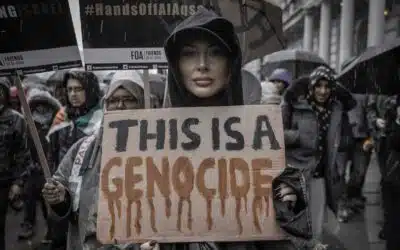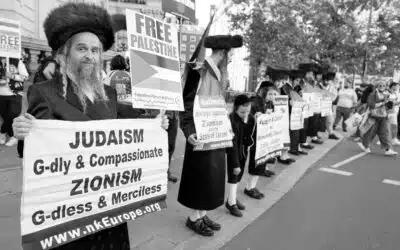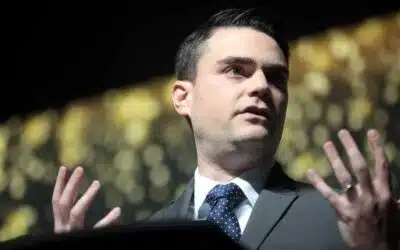I’ve frequently written about how the mainstream media exaggerates the role of the Taliban in the Afghanistan opium trade and downplays the role of the Afghan government, U.S.-backed warlords and drug lords with connections to the regime, and the CIA. Occasionally, a mainstream media report sheds some light on the elephant in the room. The New York Times this week reports on how the CIA has been handing over suitcases of currency to the regime of Hamid Karzai, but that
there is little evidence that the payments bought the influence the C.I.A. sought. Instead, some American officials said, the cash has fueled corruption and empowered warlords, undermining Washington’s exit strategy from Afghanistan.
“The biggest source of corruption in Afghanistan,” one American official said, “was the United States.”
This is of course completely unsurprising. Iran, the Times also notes, has similarly been giving cash to the Afghanistan government, but
Interestingly, the cash from Tehran appears to have been handled with greater transparency than the dollars from the C.I.A., Afghan officials said.
The Times suggests that
Instead of securing his good graces, the payments may well illustrate the opposite: Mr. Karzai is seemingly unable to be bought.
But other information reported by the Times suggests that the money isn’t about bribing Karzai into compliance. They remind readers, for example, how
Mr. Karzai’s half brother, Ahmed Wali Karzai, was paid by the C.I.A. to run the Kandahar Strike Force, a militia used by the agency to combat militants, until his assassination in 2011.
The article doesn’t mention the fact that Ahmed Wali Karzai was suspected of being a major drug lord. Following the link to an earlier Times piece, it notes towards the end of the article that
most American and Afghan officials believed: that he had connections to the opium trade….
That may be putting it mildly. In August of 2009, discussed the Afghan drug trade with former chief of Pakistan’s Inter-Services Intelligence agency (ISI) Gen. Hamid Gul, and he told me the president’s half-brother was the leading drug lord in Afghanistan. The Times article adds further down the page, with regard the suitcases of cash from the CIA, that
Much of it also still goes to keeping old warlords in line. One is Abdul Rashid Dostum, an ethnic Uzbek whose militia served as a C.I.A. proxy force in 2001. He receives nearly $100,000 a month from the palace, two Afghan officials said. Other officials said the amount was significantly lower.
The article similarly doesn’t mention that Dostum is likewise a leading figure in the Afghan drug trade. Here is the relevant excerpt from my interview with Gen. Gul, in which we discussed both Karzai and Dostum:
Turning the focus of our discussion to the Afghan drug problem, I noted that the U.S. mainstream corporate media routinely suggest that the Taliban is in control of the opium trade. However, according to the U.N. Office on Drugs and Crime (UNODC), Anti-Government Elements (or AGEs), which include but are not limited to the Taliban, account for a relatively small percentage of the profits from the drug trade. Two of the U.S.’s own intelligence agencies, the CIA and the DIA, estimate that the Taliban receives about $70 million a year from the drugs trade. That may seem at first glance like a significant amount of money, but it’s only about two percent of the total estimated profits from the drug trade, a figure placed at $3.4 billion by the UNODC last year.
Meanwhile, the U.S. has just announced its new strategy for combating the drug problem: placing drug traffickers with ties to insurgents —and only drug lords with ties to insurgents — on a list to be eliminated. The vast majority of drug lords, in other words, are explicitly excluded as targets under the new strategy. Or, to put it yet another way, the U.S. will be assisting to eliminate the competition for drug lords allied with occupying forces or the Afghan government and helping them to further corner the market.
I pointed out to the former ISI chief that Afghan opium finds its way into Europe via Pakistan, via Iran and Turkey, and via the former Soviet republics. According to the former British ambassador to Uzbekistan, Craig Murray, convoys under General Rashid Dostum — who was reappointed last month to his government position as Chief of Staff to the Commander in Chief of the Afghan National Army by President Hamid Karzai — would truck the drugs over the border. And President Karzai’s own brother, Ahmed Wali Karzai, has been accused of being a major drug lord. So I asked General Gul who was really responsible for the Afghan drug trade.
“Now, let me give you the history of the drug trade in Afghanistan,” his answer began. “Before the Taliban stepped into it, in 1994 — in fact, before they captured Kabul in September 1996 — the drugs, the opium production volume was 4,500 tons a year. Then gradually the Taliban came down hard upon the poppy growing. It was reduced to around 50 tons in the last year of the Taliban. That was the year 2001. Nearly 50 tons of opium produced. 50. Five-zero tons. Now last year the volume was at 6,200 tons. That means it has really gone one and a half times more than it used to be before the Taliban era.” He pointed out, correctly, that the U.S. had actually awarded the Taliban for its effective reduction of the drug trade. On top of $125 million the U.S. gave to the Taliban ostensibly as humanitarian aid, the State Department awarded the Taliban $43 million for its anti-drug efforts. “Of course, they made their mistakes,” General Gul continued. “But on the whole, they were doing fairly good. If they had been engaged in meaningful, fruitful, constructive talks, I think it would have been very good for Afghanistan.”
Referring to the immediate aftermath of the 9/11 attacks, General Gul told me in a later conversation that Taliban leader “Mullah Omar was all the time telling that, look, I am prepared to hand over Osama bin Laden to a third country for a trial under Shariah. Now that is where — he said [it] twice — and they rejected this. Because the Taliban ambassador here in Islamabad, he came to me, and I asked him, ‘Why don’t you study this issue, because America is threatening to attack you. So you should do something.’ He said, ‘We have done everything possible.’ He said, ‘I was summoned by the American ambassador in Islamabad’ — I think Milam was the ambassador at that time — and he told me that ‘I said, “Look, produce the evidence.” But he did not show me anything other than cuttings from the newspapers.’ He said, ‘Look, we can’t accept this as evidence, because it has to stand in a court of law. You are prepared to put him on trial. You can try him in the United Nations compound in Kabul, but it has to be a Shariah court because he’s a citizen under Shariah law. Therefore, we will not accept that he should be immediately handed over to America, because George Bush has already said that he wants him “dead or alive”, so he’s passed the punishment, literally, against him.” Referring to the U.S. rejection of the Taliban offer to try bin Laden in Afghanistan or hand him over to a third country, General Gul added, “I think this is a great opportunity that they missed.”
Returning to the drug trade, General Gul named the brother of President Karzai, Abdul Wali Karzai. “Abdul Wali Karzai is the biggest drug baron of Afghanistan,” he stated bluntly. He added that the drug lords are also involved in arms trafficking, which is “a flourishing trade” in Afghanistan. “But what is most disturbing from my point of view is that the military aircraft, American military aircraft are also being used. You said very rightly that the drug routes are northward through the Central Asia republics and through some of the Russian territory, and then into Europe and beyond. But some of it is going directly. That is by the military aircraft. I have so many times in my interviews said, ‘Please listen to this information, because I am an aware person.’ We have Afghans still in Pakistan, and they sometimes contact and pass on the stories to me. And some of them are very authentic. I can judge that. So they are saying that the American military aircraft are being used for this purpose. So, if that is true, it is very, very disturbing indeed.”
An alternative interpretation is that, far from failing to accomplish their goal, the suitcases of cash from the CIA have been quite successful in achieving their aim.


